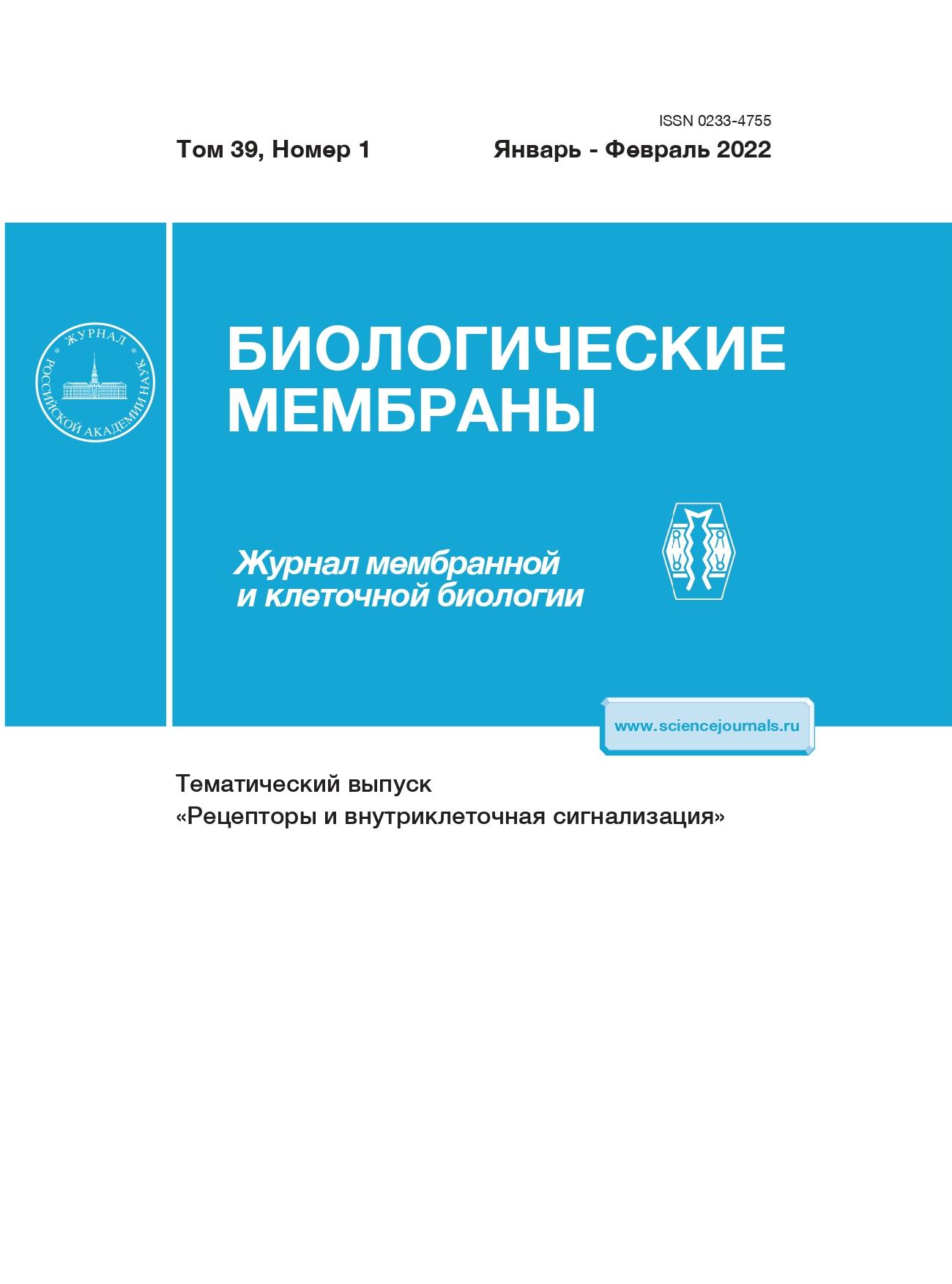
BIOLOGICHESKIE MEMBRANY
Journal of Membrane and Cell Biology

Journal of Membrane and Cell Biology
O. S. Sotnikov, S. V. Revenko
Biochemistry (Moscow), Supplement Series A: Membrane and Cell Biology. 2022;16(3):224-235
Pages: 224-235
The interaction between the mitochondrial protein cytochrome c (Cyt c) and anionic phospholipids, particularly cardiolipin (CL) in the inner mitochondrial membrane, is a critical event in cellular signaling, notably in the intrinsic pathway of apoptosis. This study investigates the **dynamics of complex formation** between Cyt c and various anionic lipids and elucidates the **mechanism by which these complexes catalyze the production of lipid radicals**. Using a combination of spectroscopic and kinetic methods, we demonstrate that the binding of Cyt c to anionic lipid bilayers induces a conformational change in the protein, transforming its native electron transport function into a peroxidase-like activity. This structural transition is highly dependent on the lipid composition and the lipid-to-protein ratio. Our findings reveal that the Cyt c-anionic lipid complex acts as a potent catalyst for the peroxidation of unsaturated fatty acids, generating lipid radicals that can propagate membrane damage. The study proposes a detailed kinetic model for the radical production mechanism, highlighting the role of the lipid environment in modulating Cyt c's pro-apoptotic function. These results provide crucial insights into the molecular events underlying mitochondrial membrane permeabilization and oxidative stress-related pathologies.